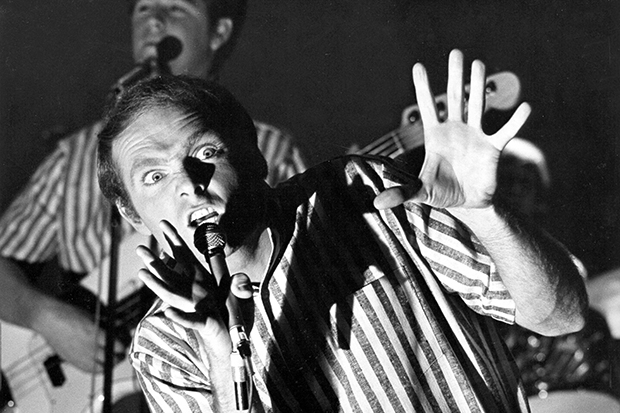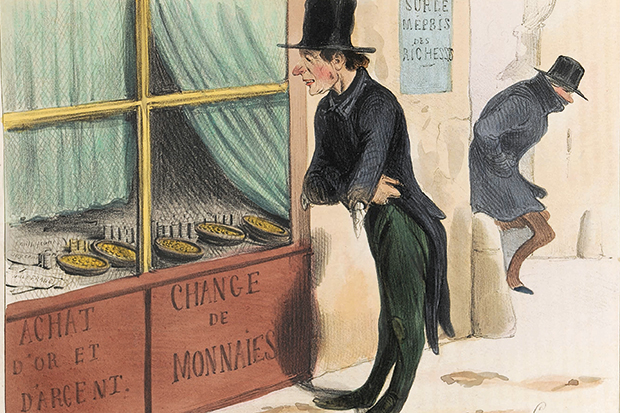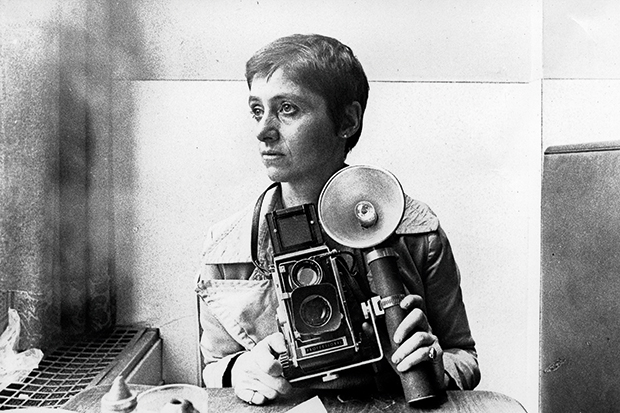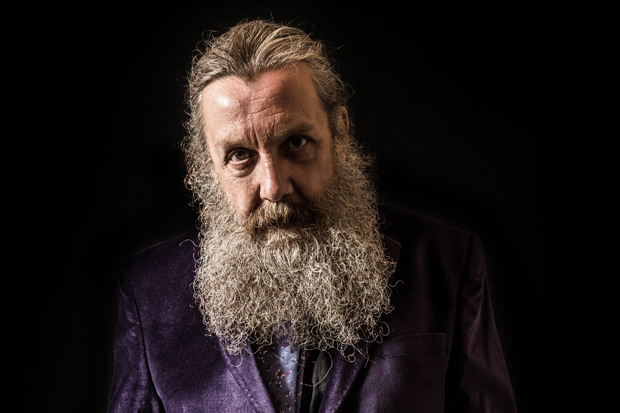A horse walks into a bar.… David Grossman takes the opening line of an old joke for his title, which could be a signal of comedy to come; and indeed he strews his novel’s pages with punchlines — good, bad-taste and groan-worthy. But this is gallows humour at its darkest: Grossman beckons us into a basement comedy club in an Israeli town, and uses the world of stand-up to explore not jokes but the nature of guilt.
We stick with the comedian Dovaleh G from the moment he stumbles on to the stage till he exits two hours later. There are Israeli in-jokes — ‘How do paratroopers commit suicide? Jump off their ego onto their IQ’ — but long before the end, laughs have faded and applause has given way to hostility. Loyal fans expecting an evening of entertainment instead watch a man fall apart as he looks into himself and his past: the father who conflated tough love and punishment; the Holocaust-survivor mother with ‘vein embroidery’ on her wrists — reminders of suicide attempts. She met Dr Mengele — ‘a short consultation’, Dov observes dispassionately; ‘No second opinions.’ The horrors are left undescribed.
The gig is a confessional; a memoir by other means, as Dov shows us the scrawny kid who learned the trick of walking on his hands, creating a topsy-turvy world to run away from trouble, and on one crucial day, unendurable torment. At 57, publicly picking the scab of the past, here he is, walking on his hands again.
There’s a narrator figure, a district judge who knew Dov as a boy. He watches, mortified, as Dov drags the audience into the dangerous territory of his personal hell. Dangerous in more ways than one: the book’s structure provides the full, confrontational stand-up experience. The author subjects readers to the offensive humour and foul-mouthed abuse that the audience endures, intercut with intimate memories, circling ever closer to a defining childhood trauma. Of course, we could stop reading. Just as those in the audience, post-laughter and post-heckling, choose to leave or to stay, we can read on and empathise with him, or not. Some may not.
Is there something in the remorseless demand for laughs in the world of comedy that pushes performers close to the edge? Failure, family dysfunction and botched relationships are grist to the mill. Stand-up frequently moves into ridicule, including self-ridicule, and on-stage crack-ups are not unknown. Spectacular examples mark the topography of jokeland — Lenny Bruce, unravelling into paranoia in London’s Establishment Club; Richard Pryor’s disastrous eruption at the Hollywood Bowl… Dov is emblematic.
With this raw and fiercely emotional book Grossman, one of Israel’s finest writers, steps into tricky new territory. He seems less at ease with Dov’s motor-mouth outbursts than the counterpoint of lyrical yearnings. An activist for peace, he juggles with the narrative to reveal a complex mix of politics and everyday life, so it could also be read as a portrait of Israeli society today. Shambolic and fired with a sense of helpless rage, Dov’s gig makes for an uncomfortable evening. Lenny Bruce said — and he knew whereof he spoke — ‘Without the human condition there’s no struggle, no pain and that means no laughter.’ Co-existence, then. Is that what Grossman is saying? There’s a lot of self-flagellation here. As someone, probably Woody Allen, once observed, it’s very Jewish to have the guilt without the gingerbread.
The post Joking apart appeared first on The Spectator.
Got something to add? Join the discussion and comment below.
Get 10 issues for just $10
Subscribe to The Spectator Australia today for the next 10 magazine issues, plus full online access, for just $10.
You might disagree with half of it, but you’ll enjoy reading all of it. Try your first month for free, then just $2 a week for the remainder of your first year.














Comments
Don't miss out
Join the conversation with other Spectator Australia readers. Subscribe to leave a comment.
SUBSCRIBEAlready a subscriber? Log in